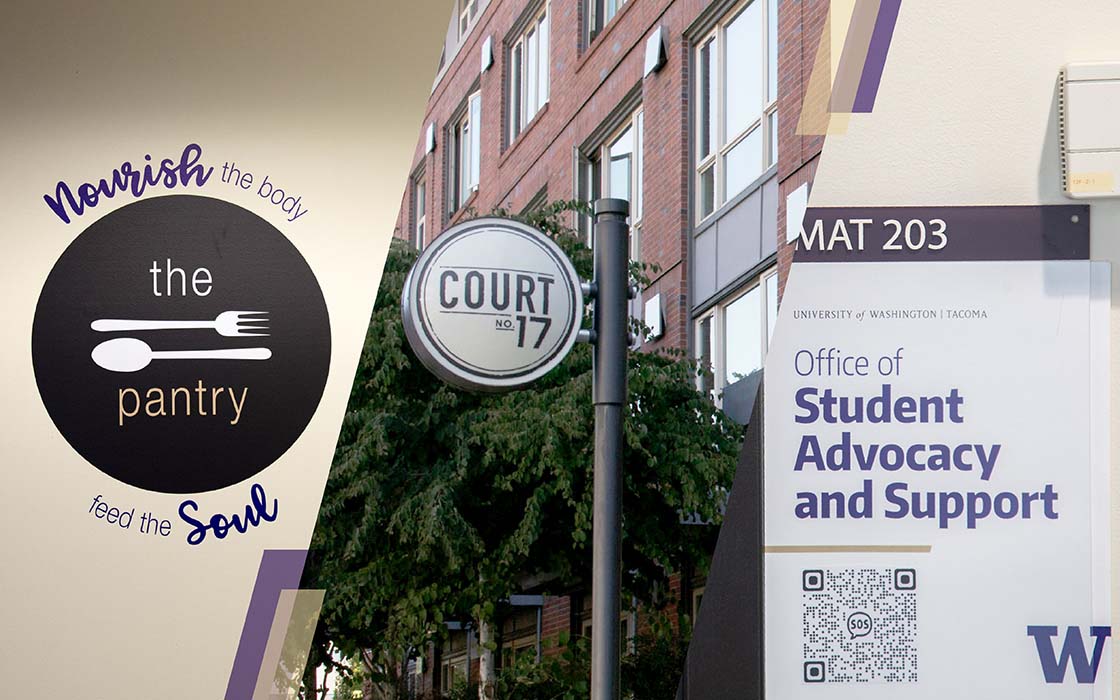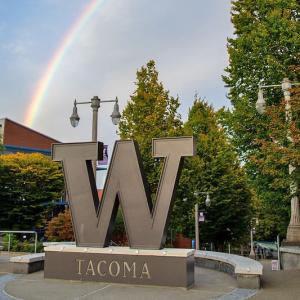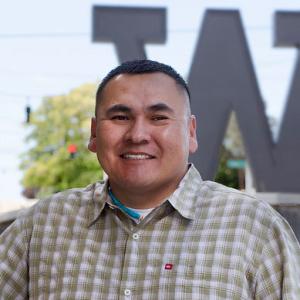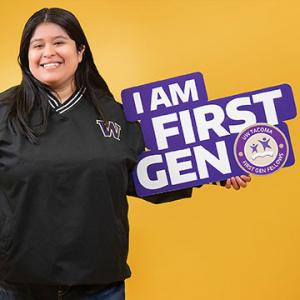
Overcoming basic-needs barriers
A $100,000 grant is helping students surmount housing insecurity and other concerns that might otherwise disrupt their educational and career plans.
A pilot project authorized by the Washington state legislature and administered by the Washington Student Achievement Council (WSAC) is helping students stay on track to complete their degrees.
The program, called Supporting Students Experiencing Homelessness (SSEH), launched in 2019 with six of the state’s public 2-year and 4-year institutions. Six more were added in 2021, and UW Tacoma joined in 2022 along with 20 other institutions.
Through the pilot project, UW Tacoma received $100,000. According to the legislation, the funds are to be used to “provide assistance to students experiencing homelessness and to students who were in the foster care system when they graduated high school.”
Recent research at the statewide level, including at UW Tacoma, illuminates the prevalence of housing and food insecurity among Washington college students.
WSAC partnered with Western Washington University to conduct a basic needs survey across the state’s higher education institutions. Thirty-nine colleges and universities participated, including all the public baccalaureate schools, most of the community/technical colleges and one independent institution (Seattle University). At a statewide level, nearly half of students surveyed reported experiencing either food or housing insecurity (termed basic-needs insecurity). One in four experienced both, and one in every ten students experienced homelessness in the last 12 months.
Homing in on the South Puget Sound region (Pierce, Thurston, Lewis and Mason counties), the rate was even higher, with 54.1% of students experiencing basic-needs insecurity. Statewide, BIPOC students experienced basic-needs insecurity at higher rates than their white peers, and former foster youth had the highest rate among all subpopulations.
“With the funds from the WSAC grant, we have a lot of flexibility,” said Roseann Martinez, assistant director for student advocacy and support. “We’ve been able to set aside two apartments in Court 17 [the UW Tacoma student residential complex] for use as emergency housing.”

“We’ve used the funds to pay for HuskiesCare, an online hub with more than 100 resources that students can search by phrases describing their concerns,” Martinez said. “For example, a student who can’t afford food can learn about the UW Tacoma Pantry, emergency financial aid, the U.S. Supplemental Nutrition Assistance Program (SNAP), Food is Free Tacoma, the Emergency Food Network, or the Food Connection.”
“Being able to publish this giant encyclopedia of resources has been a godsend,” said Martinez. “More of our students can be their own advocates, and I am able to assist individual students with complex or dire concerns. Of course, I never turn away a student that wants to meet one-on-one.”
Besides emergency housing and HuskiesCare, Martinez is using the WSAC funds to use an intern in developing a campaign to encourage students to sign up for federal SNAP benefits, and has a supply of pre-paid cash cards on hand to help students with emergency food purchases.
On a statewide level, in the three years of the SSEH pilot, more than 2,650 students have been served.
The WSAC grant is time-limited, and is part of a pilot project. But there are two bills before the Washington state legislature this session that would change that. HB1693 in the House and SB5702 in the Senate would put the Supporting Students Experiencing Homelessness on permanent footing. As of this writing, both bills have made it past the first legislative hurdle and are being considered by relevant committees in each house.



